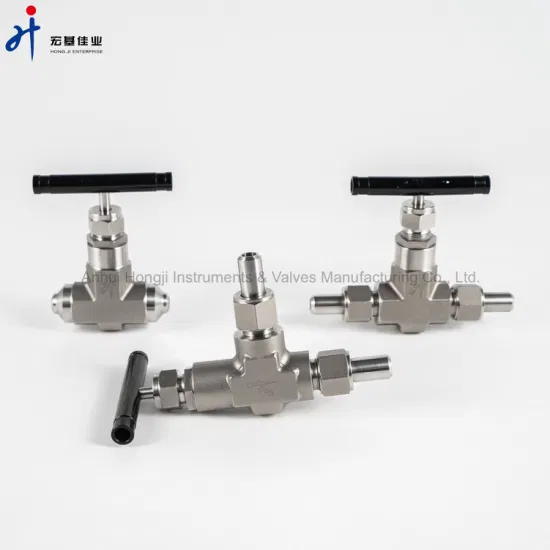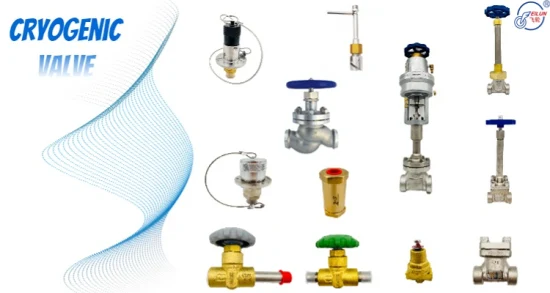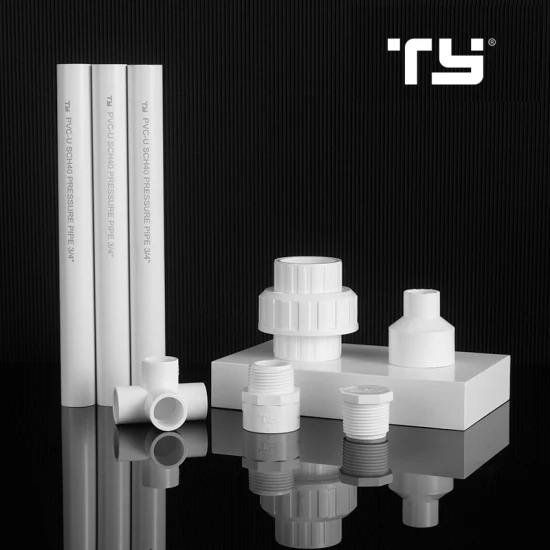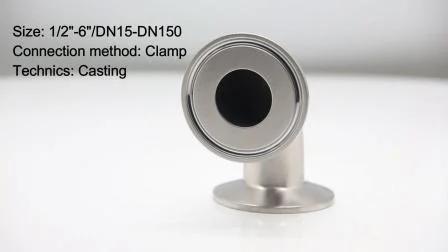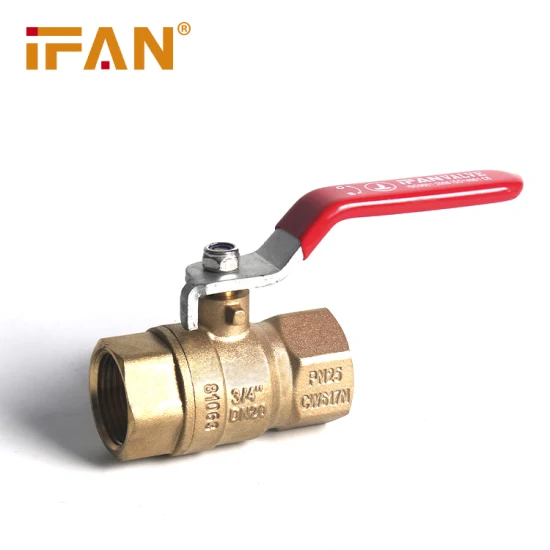
Ifan Brass Cw617n Gate Check Radiator Float Angle Non Rerurn Water Gas Ball Valve
Basic Info.
| Model NO. | GZ-113 |
| Driving Mode | Manual |
| Nominal Pressure | PN1.0-32.0MPa |
| Channel | Plastic Pipe |
| Structure | Ball Valve |
| Type | Ball Valve |
| Function | Water Control |
| Temperature | Normal Temperature |
| Standard | ISO CE |
| Application | Domestic Water |
| Body Material | Brass |
| Ball Material | Brass |
| Size | 1/4inch - 2inch |
| Name | Water/Gas Ball Valve |
| Transport Package | OPP Bag + Carton |
| Specification | 1/2inch - 2inch |
| Trademark | IFAN |
| Origin | China |
| HS Code | 8481804090 |
| Production Capacity | 1000PCS/Day |
Packaging & Delivery
Package Size 20.00cm * 15.00cm * 5.00cm Package Gross Weight 0.020kgProduct Description
Ifan Brass cw617n Gate Check Radiator Float Angle Non Rerurn Water Gas Ball Valve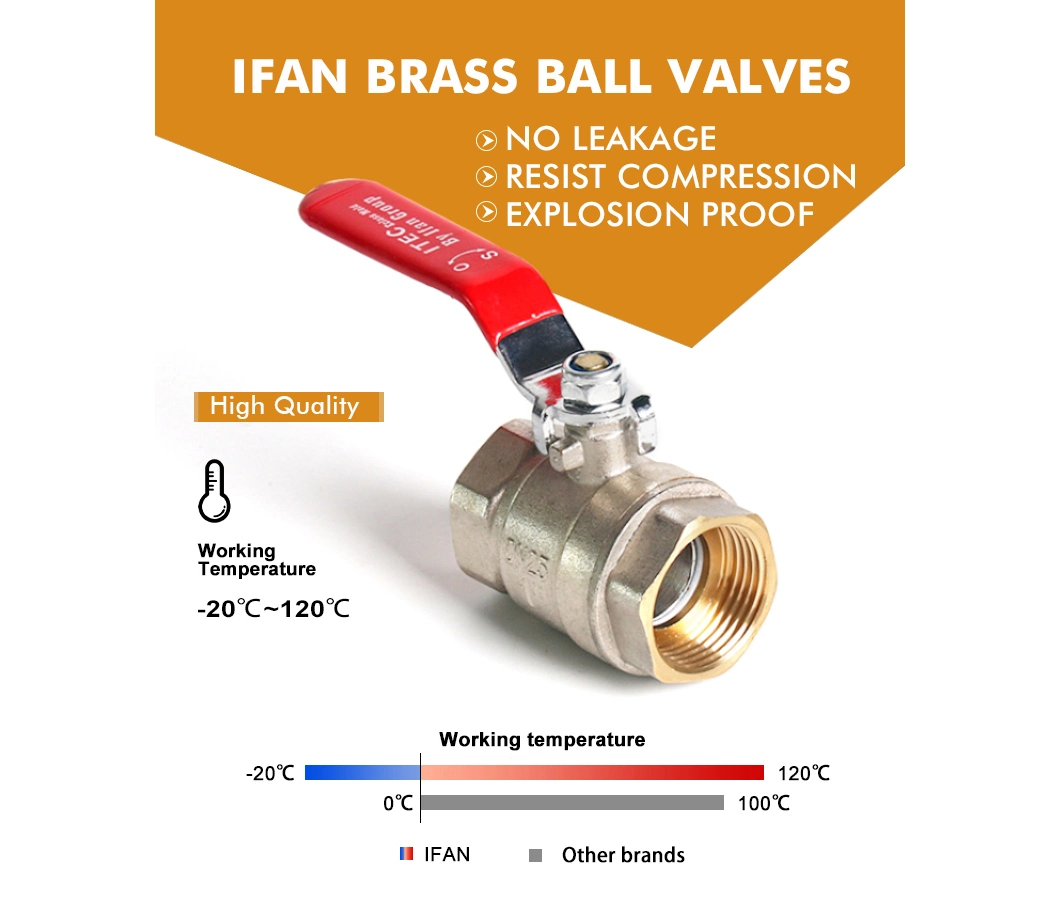
| Product Name | Brass Ball Valves |
| Brand | IFAN |
| Size | Customized |
| Color | Silver,Yellow or Customized |
| Support | OEM&ODM |
| Material | CW617N Brass/58-3 Brass |
| Pressure | PN25 |
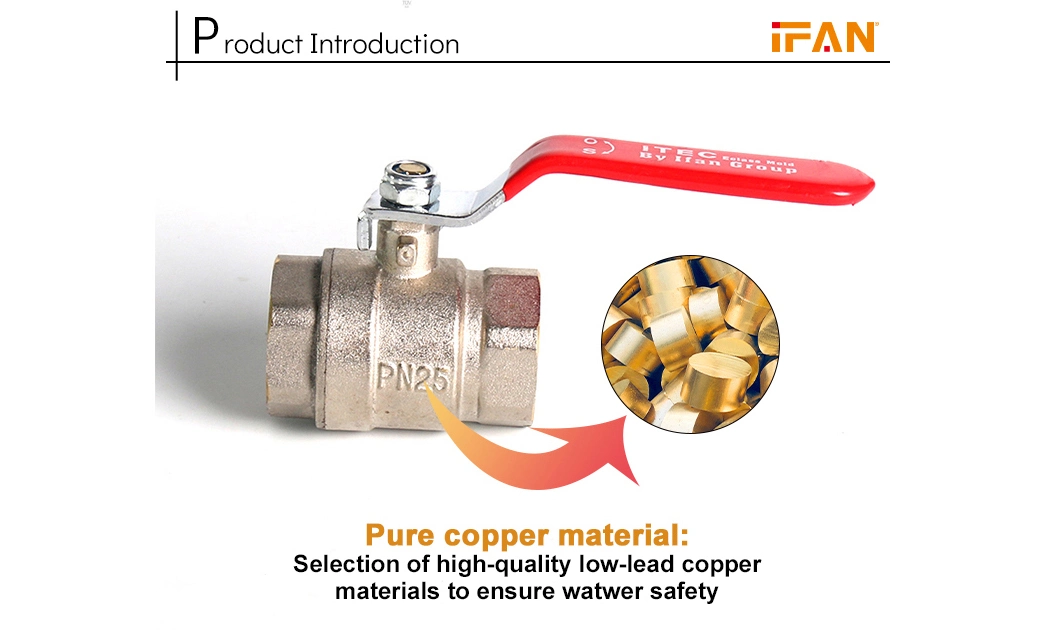
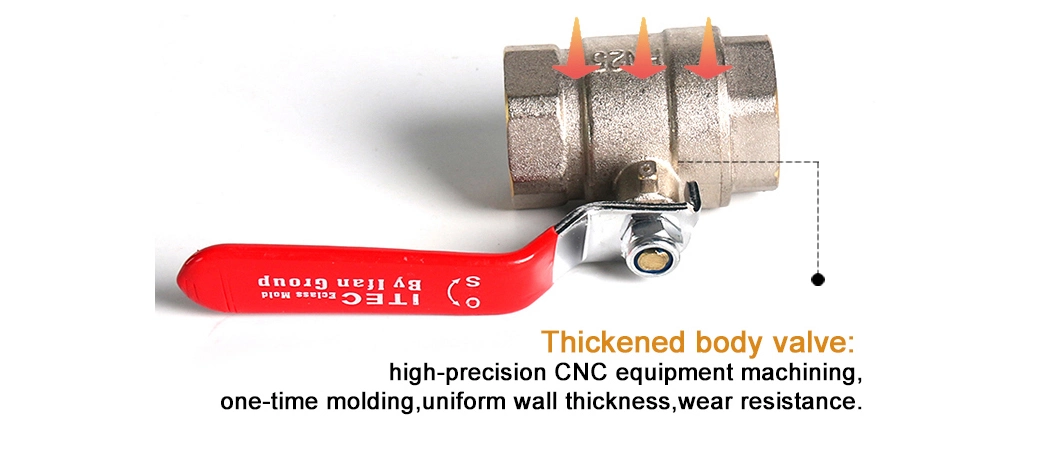
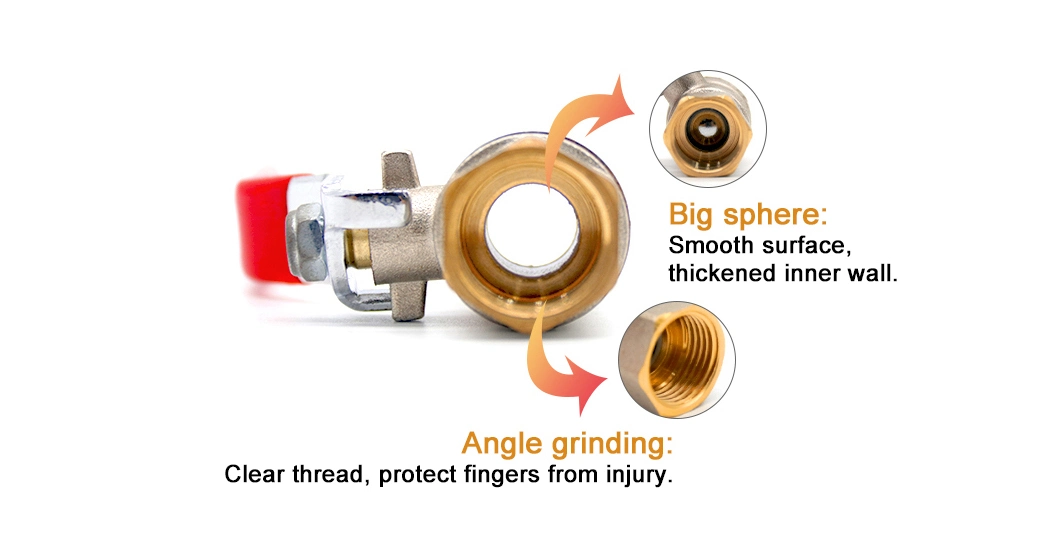
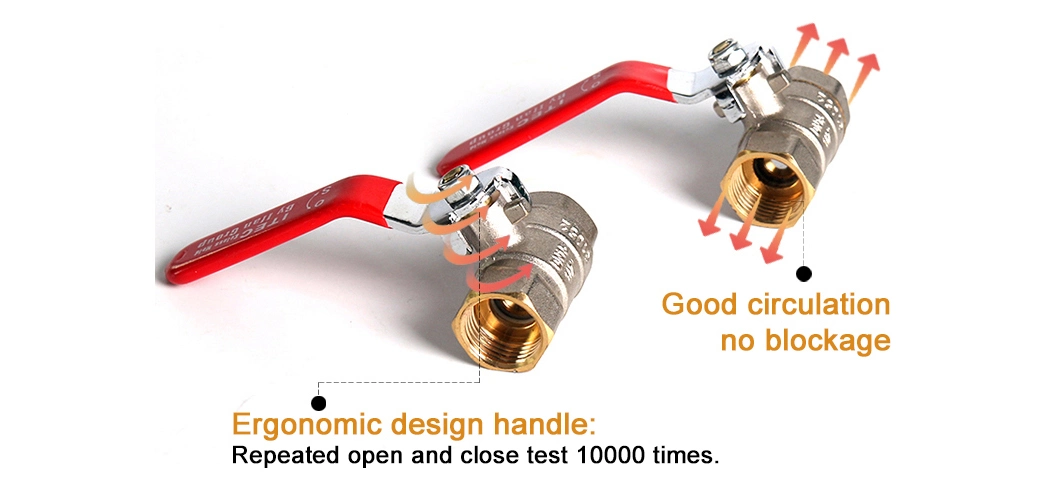
FAQ
Q: What is a brass valve?
A: A brass valve is a type of valve that is made primarily of brass, a metal alloy composed of copper and zinc. Brass valves are widely used in plumbing, heating, and industrial applications due to their durability, corrosion resistance, and excellent sealing properties.
Q: What are the different types of brass valves?
A: Brass valves come in various types, including:1. Ball valves: These valves use a rotating ball with a hole to control the flow of liquids or gases.2. Gate valves: Gate valves have a sliding gate or wedge that moves up and down to regulate fluid flow.3. Globe valves: Globe valves have a globe-shaped disc that moves against the flow of fluid to control the flow rate.4. Check valves: Check valves allow fluid flow in one direction and prevent backflow.5. Butterfly valves: Butterfly valves use a disc that rotates on a central axis to regulate flow.6. Needle valves: Needle valves have a long, tapered needle-like stem that allows for precise control of flow rate.
Q: What are the advantages of using brass valves?
A: Brass valves offer several advantages:1. Corrosion resistance: Brass is highly resistant to corrosion, making brass valves suitable for various environments, including those with exposure to water or corrosive fluids.2. Durability: Brass is a strong and durable material, allowing brass valves to withstand high pressure and frequent use without damage.3. Excellent sealing properties: Brass valves provide a reliable and tight seal, reducing the risk of leaks and ensuring efficient flow control.4. Versatility: Brass valves can be used with different types of fluids, including water, oil, gas, and air, making them suitable for a wide range of applications.5. Easy to install: Brass valves often come with standard pipe threads or compression fittings, making installation straightforward and hassle-free.6. Temperature resistance: Brass valves can handle a wide range of temperatures, making them suitable for both hot and cold applications.
Q: Where are brass valves commonly used?
A: Brass valves are commonly used in various applications, including:1. Plumbing systems: They are widely used in residential, commercial, and industrial plumbing systems to control the flow of water, such as in faucets, showers, toilets, and pipes.2. Heating systems: Brass valves are used in heating systems, including radiators, boilers, and underfloor heating systems, to regulate the flow of hot water or steam.3. HVAC systems: They are used in heating, ventilation, and air conditioning systems to control the flow of air or refrigerants.4. Industrial processes: Brass valves find applications in industrial settings, including manufacturing, chemical processing, and oil and gas industries, to control the flow of fluids or gases in pipelines.5. Fire protection systems: Brass valves are commonly used in fire sprinkler systems to control water flow during emergencies.


